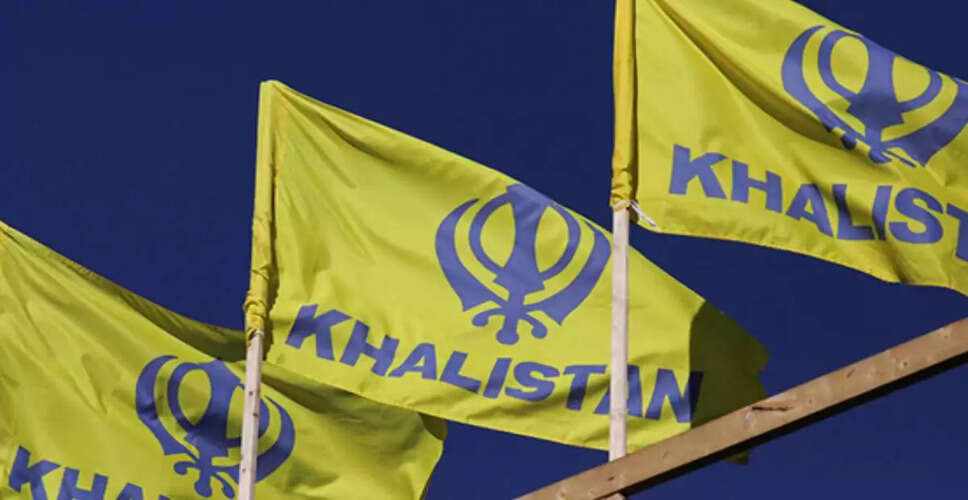CSIS Acknowledges Khalistani Extremism in Canada: A Growing Concern

CSIS Report Highlights Khalistani Threats
In a groundbreaking revelation, Canada's leading intelligence agency, the Canadian Security Intelligence Service (CSIS), has officially recognized that Khalistani extremists are utilizing Canadian territory to promote, fundraise, and orchestrate violence in India. The agency's annual report, released on Wednesday, outlines significant threats to national security, stating, “Khalistani extremists continue to use Canada as a base for the promotion, fundraising or planning of violence primarily in India.”
India's Long-Standing Concerns Validated
For years, India has expressed concerns regarding Khalistani extremists operating from Canada, but these issues were largely overlooked by Canadian authorities. The CSIS report affirms that Canada has become a refuge for anti-India factions, thereby validating India's long-standing apprehensions. This acknowledgment follows a recent agreement between Prime Minister Narendra Modi and his Canadian counterpart Mark Carney to take measured steps to stabilize their diplomatic relations, including the reinstatement of High Commissioners in each other's capitals.
G7 Summit Discussions
During the G7 Leaders’ Summit held in Kananaskis, Alberta, Prime Minister Mark Carney engaged in discussions with Prime Minister Modi. Both leaders agreed to appoint new high commissioners to facilitate the resumption of regular services for citizens and businesses in both nations, as per a press release from the Canadian Prime Minister's office. The report highlights that the threat of Politically Motivated Violent Extremism (PMVE) in Canada has primarily emerged from Khalistani extremists aiming to establish an independent state called Khalistan, predominantly in Punjab, India.
Historical Context of Khalistani Extremism
The report indicates that since the mid-1980s, the PMVE threat in Canada has been largely attributed to Khalistani extremists. It states, “A small group of individuals are considered Khalistani extremists because they continue to use Canada as a base for the promotion, fundraising or planning of violence primarily in India.” The report further notes that the perceived Khalistani extremism from Canada is influencing Indian foreign interference activities within Canada, raising alarms about foreign meddling and extremist activities in the context of its delicate diplomatic ties with India.
Canada's Intelligence Findings
Canada's intelligence community has corroborated what New Delhi has consistently asserted: Canada has become a sanctuary for anti-India elements. The report emphasizes the need for ongoing vigilance against both external influence campaigns and domestic extremist financing networks. It warns that these activities aim to align Canada’s positions with India’s interests, particularly regarding the Indian government's views on supporters of an independent Khalistan.
Escalating Tensions
Tensions heightened when former Canadian Prime Minister Justin Trudeau alleged that his government had “credible allegations” of India's involvement in the assassination of Khalistani terrorist Hardeep Singh Nijjar in Canada in 2023. India has vehemently denied these claims, labeling them as “absurd” and “motivated,” while accusing Canada of harboring extremist elements. Following these events, India recalled six diplomats from Canada after they were identified as “persons of interest” in the investigation surrounding Nijjar's murder, who was shot outside a gurdwara in Surrey, British Columbia, on June 18, 2023.
Implications for India-Canada Relations
The report indicates that the connections between the Indian government and the Nijjar murder represent a significant escalation in India's efforts to suppress the Khalistan movement and a clear intention to target individuals in North America. It reiterates that real and perceived Khalistani extremism from Canada continues to drive Indian foreign interference activities within the country.
Criticism of Canadian Leadership
Prime Minister Mark Carney faced backlash for inviting Indian Prime Minister Narendra Modi to the G7 summit, with some Sikh advocates and members of his own party expressing discontent. Nevertheless, Carney defended his decision, highlighting India's importance in global affairs. He pointed out that India is the world's fourth-largest economy and most populous nation, making it a vital player in tackling global challenges.
